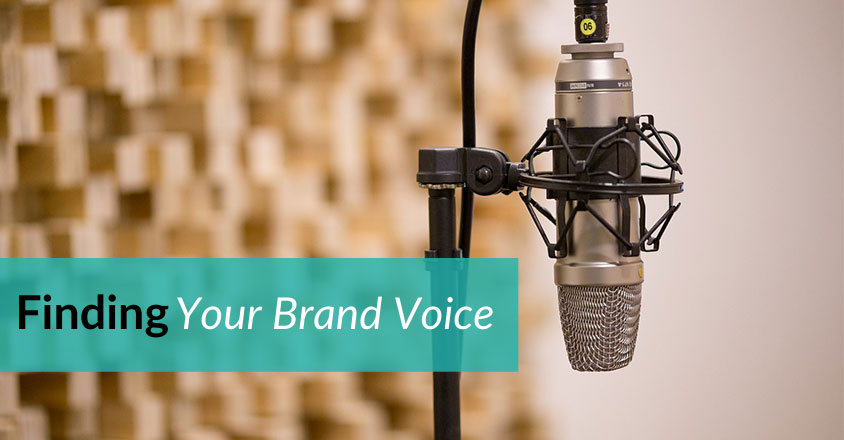Everything is exciting when you first start creating social media accounts for your professional/business profile.
You have so much to share with everyone. What you offer is so good. Your audience is going to love how your products and services are going to make their lives better.
You setup a cool profile picture and/or logo, filled out your profile description and post your first posts. And then crickets.
You don’t know what to post next.
Before you know it, you only use social media only you feel like it, or whenever you remember about it. Which isn’t often, if you’re honest.
Let’s fix that.
Start By Finding Your Voice
By this we mean figuring out the way you talk and present yourself on social media. Once you do this, you’ll become more confident at interacting on social media and it becomes easy and even enjoyable to post on social media.
Perhaps more importantly, once you’ve found your voice, you won’t appear as ‘fake’ – one of the worst outcomes in the social media world.
A lot of people overlook this step altogether. Instead, they search for that one social media hack that will magically draw followers to their platforms. But the best strategies will prove meaningless if you’re not clear of your own voice.
How to find your voice
Some people call it ‘voice’. Others may call by other names: style, personality, niche, personal brand.
Whatever you call it, find it.
How do you know when you’ve found it? When like-minded people start interacting with you and your platform.
‘Like-minded’ is an important point to make here. It’s human nature to like people who share similarities with you. You’ll also be a lot more motivated to post consistently if you derive genuine enjoyment while interacting with your audience.
Reminder
It’s better to have a low follower count and a high engagement rate than a high follower count and a low engagement rate
Think about how easily you can find words to define your favorite public figure, for example. You liked them because they are [keyword], [keyword] and [keyword].
What are your keywords? What defines you?
If you have trouble coming up with keywords that define yourself, you could…
Get methodological about it and take a bunch of personality tests to figure out your personality, strengths and weaknesses.
Have a long, frank conversation with your best friend (or a coach) and get them to point out which aspects of your personality shines the brightest.
Have fun with the trial and error route. Study your favorite platforms’ social media channels and test them out with your platform. If it works, great, optimize from there. If not, try another.
Look for personality descriptors (here’s a comprehensive one) and select keywords that you think describe yourself or your platform.
Do you have keywords describing your brand in mind? Great! Do the exercise below – fill in the brand positioning statement to see the connection between your unique voice and your audience.
For [your target market] who [target market need], [your brand name] provides [main benefit that differentiates your offering from competitors] because [reason why target market should believe your differentiation statement.]
Example of ClickWP’s brand positioning statement:
For [small businesses and beginner bloggers] who [want to grow their website but feel overwhelmed with technology], [ClickWP] provides [friendly and affordable WordPress tech support and guidance with a personal touch.] Because [ClickWP is a small business ourselves, we understand our customers needs intimately and know how get the most bang for their buck.]
Hang Out In The Right Channels
Once you’ve found your voice, it’s time to interact and hang out with like-minded people. You’ve got limited time, so choose where you spend it carefully.
Choosing social media channels depends heavily on your voice, and whether you’re a B2C or B2B business.
You wouldn’t want to wear a suit and tie to a poolside BBQ party. You would feel uncomfortable, it would look weird and other guests may not want to talk to you, the weirdo.
If you’re selling products or services to individuals, Facebook, Instagram, Youtube, Twitter and Pinterest are your best options. Find out where your target audience likes to spend time on.
For B2B businesses, use LinkedIn, Twitter and maybe Facebook. All of these platforms are great for personal branding and leveraging on professional connections.
Also consider your niche. If your brand is all about music, consider investing more time in ReverbNation or SoundCloud. Pinterest is a must for wedding industry, hair and makeup service providers.
But ultimately, pick the social media channel you love spending time on. The online crowd is bigger than you think – there are communities everywhere.
Finally, keep in mind that each social channel has its own quirks and culture, so the same tactics may not apply across channels. For example, to succeed on Instagram you must master the art of hashtags. On Twitter, you need to be concise but witty.
Conclusion & Further Reading
Finding your voice and choosing the right social media channels are the first steps to social media success. Getting the basics right will help set you up for success, but social media marketing is a huge undertaking.
Next, you should decide on a strategy, set some goals and be consistent in your marketing efforts. All of these go beyond the scope of our guide, so here are some further reading for you to learn more about social media.




